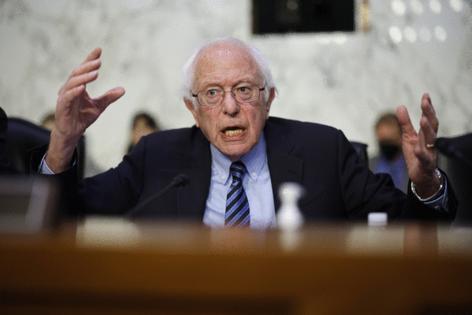Experts say Medicaid rebate change is behind inhaler price cuts
Published in Business News
A recent tweak to a Medicaid formula could be behind the shake-up to inhaler products, a series of changes that have both benefited and harmed patients with asthma and chronic obstructive pulmonary disease, or COPD.
Three of the four major inhaler manufacturers have announced plans to cap patient copays for all their inhalers at $35 a month in recent weeks, in addition to lowering the list prices of some of those products. But one drugmaker also withdrew two popular children’s inhalers from the market, and the alternative is in short supply.
Boehringer Ingelheim, AstraZeneca PLC and GlaxoSmithKline, also known as GSK PLC, all announced the $35 monthly copay cap, which could significantly extend the impact of their current patient assistance programs. The companies have simultaneously cut list prices — the initial price before health plans negotiate discounts and rebates — for some, but not all, of their inhalers.
The drug companies say they’ve made the changes because they’re committed to helping patients. Some Democrats on Capitol Hill say it happened because of public pressure. But some drug pricing experts are pointing to a recent change in the formula of Medicaid’s mandatory drug rebate program as the reason. It’s the same reason experts pointed to when insulin manufacturers lowered their list prices, although those reductions were more widespread.
The rebate change can force drugmakers to actually pay Medicaid in some cases if list prices on older products outpace inflation. The effect is less severe on asthma products than it was on insulin, thanks to a 2009 ban on chlorofluorocarbons, a common propellant in old inhalers, that resulted in a wave of new inhalers with new patents.
Because the change to the Medicaid rebate formula penalizes older drugs with higher prices the most, the newer inhalers are less affected than older insulin products.
“They’re still playing the same game,” said Anna Kaltenboeck, a former Senate Finance Committee staffer under Oregon Democrat Ron Wyden who now leads ATI Advisory’s Prescription Drug Reimbursement Practice. "It just brought the ceiling on the game down a little bit. And they’re sort of diffusing it vis-a-vis the patients by giving them these copay coupons.”
The rebate change is tied to the change in list prices, though, not copays. Copay caps are important because they limit what patients pay — including, at least in this case, uninsured patients — but reducing list prices helps cut behind-the-scenes costs that are absorbed by the health care system.
The rebate change took effect in January. GlaxoSmithKline in January reduced the list price for its Advair Diskus and Advair HFA inhalers, while AstraZeneca also reduced the list price of Symbicort. Boehringer Ingelheim is also planning to cut the list prices for Spiriva HandiHaler and Atrovent HFA.
Other factors like Medicare’s new penalty for raising prices faster than inflation could also be driving the changes.
...continued
©2024 CQ-Roll Call, Inc., All Rights Reserved. Visit cqrollcall.com. Distributed by Tribune Content Agency, LLC.







Comments